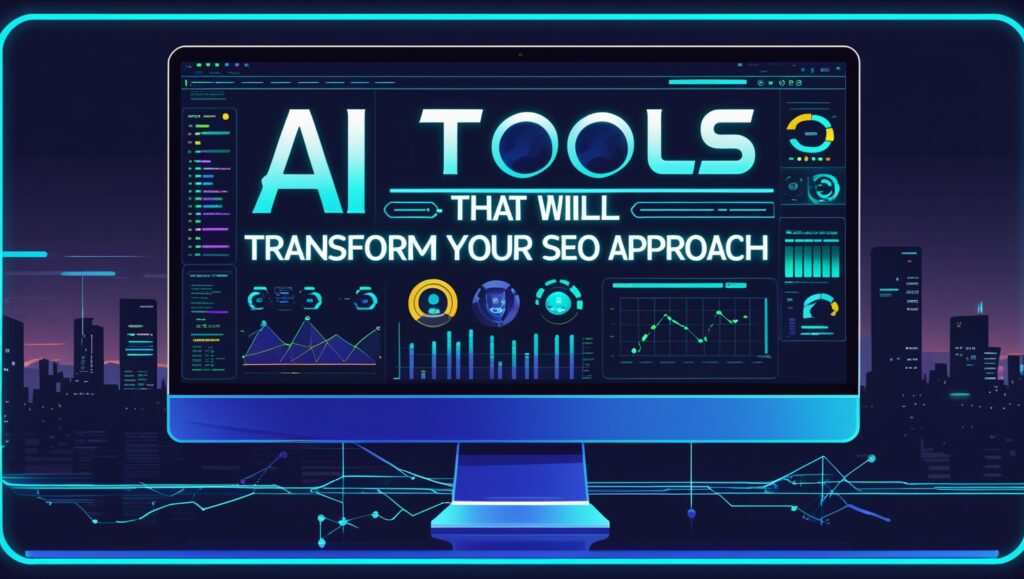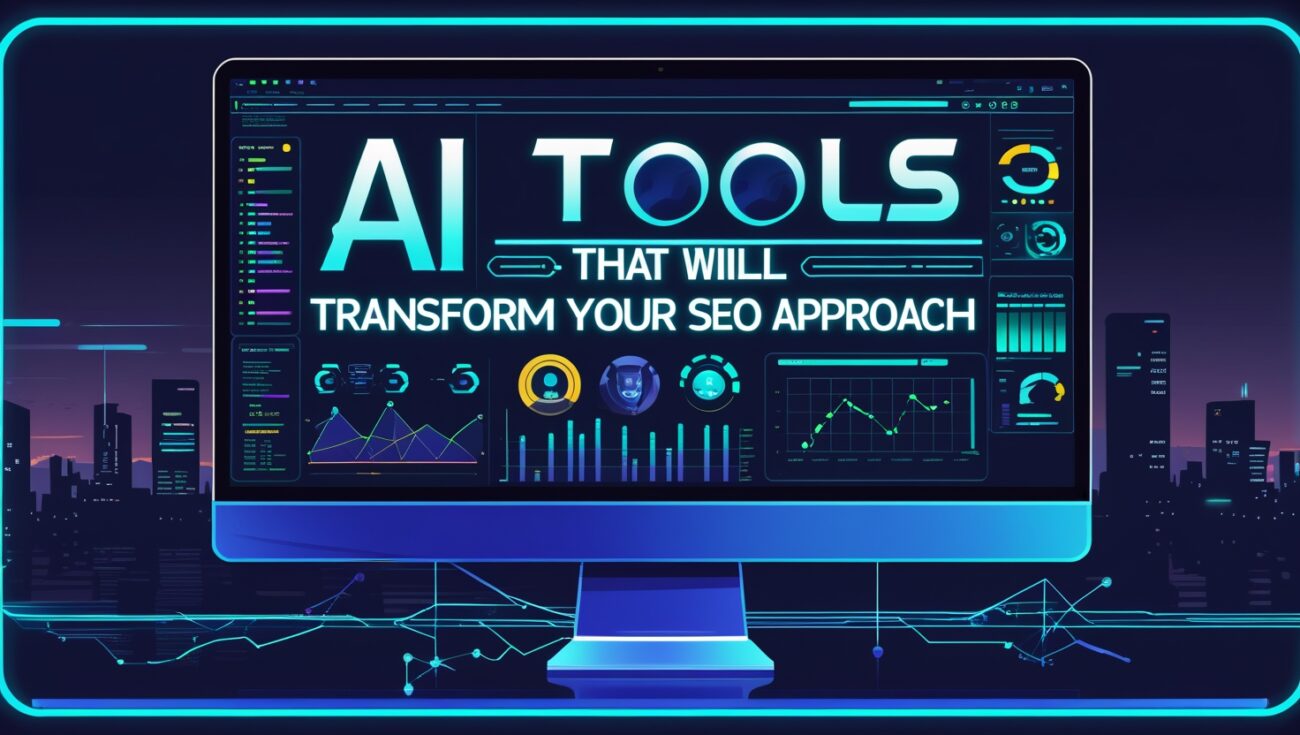How to Leverage AI for Keyword Research and SEO
If you’ve ever struggled to find the right keywords, write SEO-friendly content, or stay ahead of your competitors, then AI tools can completely change your approach. Artificial Intelligence makes keyword research faster, smarter, and far more accurate than traditional methods. Instead of guessing what your audience wants, AI helps you uncover exactly what people are searching for—and how to rank for it.
In this post, I’ll break down how to use AI for keyword research, how it improves your SEO workflow, and the best tool I personally recommend.

Table of Contents
Why AI is the Future of Keyword Research
Traditional keyword research can feel overwhelming. You look up terms, compare competition levels, and try to figure out what people are actually typing into Google. AI takes all of that complexity and simplifies it.
AI doesn’t just generate keyword lists—it analyzes search intent, content gaps, and ranking opportunities. That means you’re not just targeting random words, you’re creating a full SEO strategy around what people actually want.
Step 1: Find Keyword Ideas With AI
The first step in SEO is always keyword discovery. AI tools can scan the internet, look at your competitors, and instantly suggest keywords that are:
- High-traffic but low-competition.
- Directly related to your niche.
- Aligned with real search intent.
This saves you hours compared to manually scrolling through keyword planners.
Step 2: Analyze Search Intent
Not all keywords are equal. For example, the keyword “best laptops” means the person is researching before buying, while “buy Dell laptop online” shows they’re ready to purchase. AI can detect these differences automatically.
By using AI for keyword research, you’ll know whether a keyword is informational, navigational, or transactional. That’s how you build content that matches your reader’s exact stage in the buying journey.
Step 3: Optimize Your Content Around AI Keywords
Once you have the right keywords, AI can help you build SEO-friendly content briefs. These briefs include:
- Suggested headlines (H1, H2, H3).
- Semantic keywords related to your main topic.
- Competitor analysis so you know what to do better.
This is where Frase.io comes in. With Frase, you can enter a keyword and instantly get a full SEO content outline, including the top questions people are asking.
Step 4: Use AI to Fill Content Gaps
AI doesn’t just tell you what’s popular—it shows you where your competitors are weak. For example, if they’re ranking for “how to start a blog” but didn’t explain monetization, that’s your opportunity.
With Frase, you can uncover those missing points and make your content stronger than anything already on Google.
Step 5: Track and Improve With AI
Keyword research doesn’t stop after you publish. AI tools can track how your content performs, suggest new keyword opportunities, and even recommend updates when your competitors start ranking higher.
This ongoing improvement is what separates casual bloggers from those who dominate search rankings.
Why I Recommend Frase for AI Keyword Research
I’ve tested different tools, and the one that consistently stands out is Frase.io. It’s not just another keyword tool—it’s a complete SEO content assistant.
With Frase, you can:
- Discover keywords and questions people actually search.
- Create optimized outlines instantly.
- Write content that’s built to rank on page one.
- Update old posts with AI recommendations.
Try it here: Frase.io Keyword Research Tool
Final Thoughts
Keyword research used to take hours of manual work, but AI has made it smarter, faster, and more effective. If you want to build content that ranks, gets traffic, and attracts customers, using AI tools is no longer optional—it’s the new standard.
Start leveraging AI today and see the difference for yourself. Your SEO strategy will thank you.
Get started with Frase here.
One of the most overlooked benefits of using AI for keyword research is the ability to uncover long-tail keywords. These are the phrases people type when they are closer to making a decision or purchase. AI tools can analyze huge data sets and surface these hidden opportunities that you might miss manually.
Instead of guessing what your audience is searching for, AI shows you the real data-driven demand. For example, typing in “AI tools for SEO” can instantly suggest related queries like “AI SEO content optimization,” “best AI keyword tools 2025,” or “AI SEO for beginners.” These suggestions give you a roadmap for future content.
AI saves enormous amounts of time when it comes to competitor research. It can automatically analyze top-ranking pages, identify which keywords they are ranking for, and point out gaps you can exploit to outrank them.
Another major advantage of AI is search intent analysis. It helps you understand whether a query is informational, transactional, or navigational, so you create content that aligns perfectly with what users are looking for.
AI can also generate optimized content briefs. These include suggested headings, semantic keywords, and frequently asked questions. By following these briefs, you ensure your content covers the topic comprehensively and is more likely to rank.
One of the most effective ways I use AI is to refresh old content. By updating keywords, improving readability, and adding new insights, older posts can regain rankings and continue driving traffic.
AI helps maintain keyword consistency across your posts. It can highlight areas where your primary keywords are underused or overused, allowing you to strike a natural balance that satisfies both readers and search engines.
Content clustering becomes much easier with AI. By grouping related keywords and topics, you can create pillar content with supporting posts, which improves your site’s overall authority and ranking potential.
AI can also assist in meta descriptions and title tag optimization. Instead of spending hours brainstorming, AI suggests multiple options that are optimized for click-through rates and search rankings.
Tracking performance is another area where AI shines. It monitors keyword positions, traffic changes, and competitor activity, giving you actionable insights to adjust your strategy in real-time.
AI tools help you personalize content based on audience behavior and search trends. This leads to more relevant content, better engagement, and higher conversion potential.
Finally, using AI allows you to scale your SEO efforts without sacrificing quality. You can consistently create optimized, high-value content faster than ever before, giving your site a real competitive advantage.

